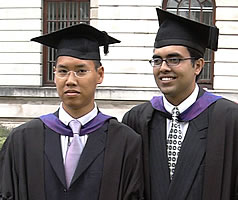Study, work or travel in the UK. British
culture and life.


Course
/ University
Find a university or college course in the UK
|
|
Study, work or travel in the UK. British
culture and life.
|
|
||
|
|
|
|
||
 |
||||
|
|
||||
 |
||||
|
Course
/ University
|
||||
|
Find a university or college course in the UK
|
||||
|
Sections:
|
Vocabulary |
 |
| Socrates-Erasmus | ||
| Find a course | ||
| League tables | ||
| Entry requirements | ||
| Education fairs & open days | ||
| Applying | ||
| Scholarships | ||
| Study skills | ||
| University life and reviews | ||
| Links | ||
|
Related pages:
|
Guide (information for all types of student) | |
| Language school (study English in the UK) | ||
| Vocational courses (study job-related subjects) | ||
| Postgraduate study (MA, MSc, PhD) |
 |
The
Times Good University Guide 2011 Author: John O'Leary Publisher: Times Books Date: May 2010 |
 |
The
Virgin Guide to British Universities 2011 Author: Piers Dudgeon Publisher: Virgin Books Date: May 2010 |
 |
How
to Complete Your UCAS Application - 2011 Entry Publisher: Trotman Date: May 2010 |
 |
The
UCAS Guide to Getting into University and College Publisher: UCAS Date: January 2011 |
 |
Big
Guide: For Entry to University or College in 2011 Publisher: UCAS Date: May 2010 |
 |
University,
Scholarships, Awards and Bursaries Author: Brian Heap Publisher: Trotman Date: October 2009 |
 |
The
Study Skills Handbook Author: Stella Cottrell Publisher: Palgrave Macmillan; book information Date: April 2003 |
 |
Study
Skills in English Student's Book Author: Michael J. Wallace Publisher: Cambridge University Press Date: June 1980 |
 |
Presenting
in English: How to Give Successful Presentations Author: Mark Powell Publisher: Language Teaching Publications Date: November 1996 |
 Graduation day |
 |
Get
Set for Study in the UK Author: Tom Barron Publisher: Edinburgh University Press Date: March 2003 |
 |
Studying
at University Author: George Bernard Publisher: RoutledgeFalmer Date: February 2003 |
 |
Student
Survival Guide Author: Lucy Clarke, Jenny Hawkins Publisher: How To Books Date: September 2001 |
|
|
|